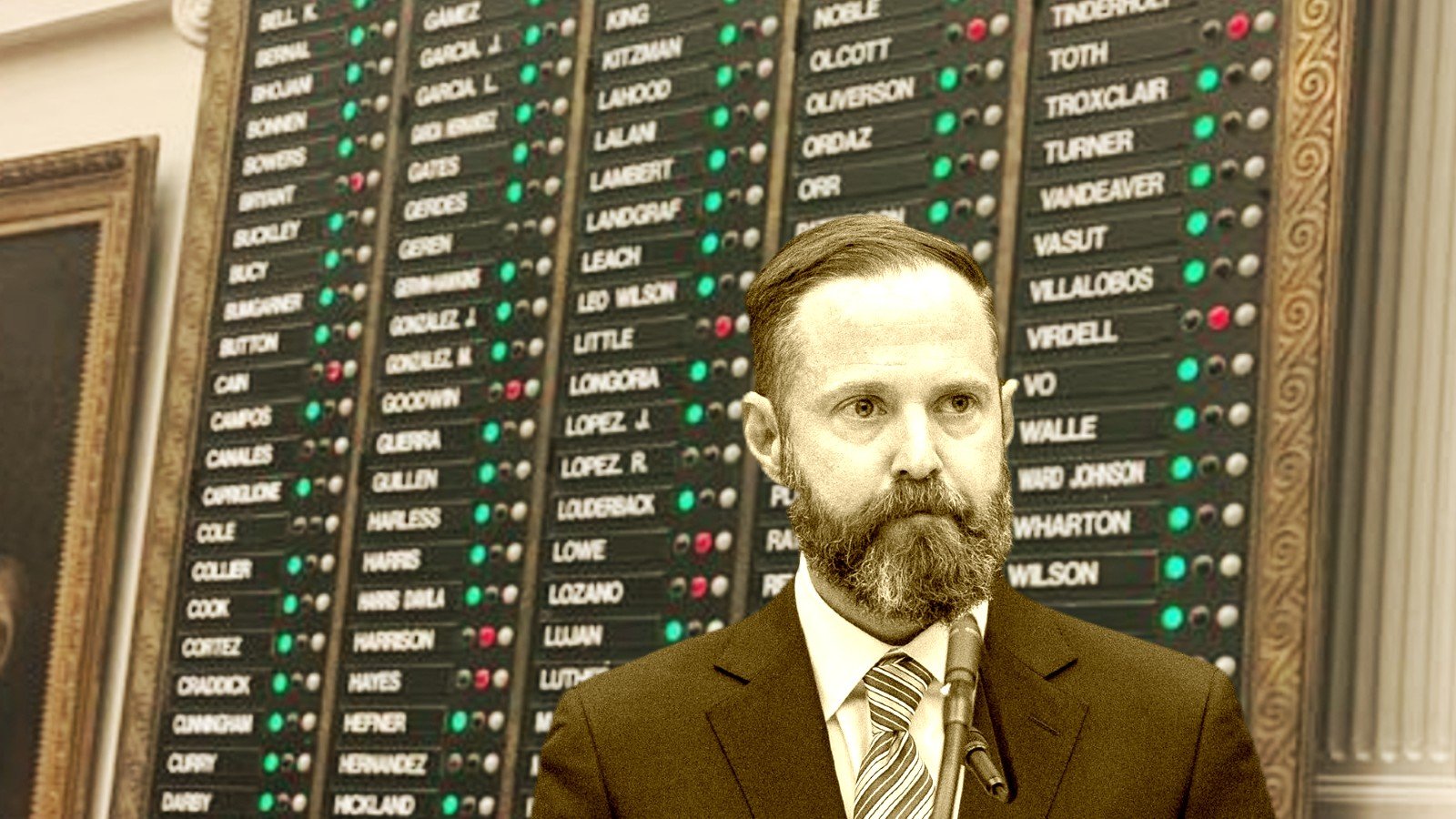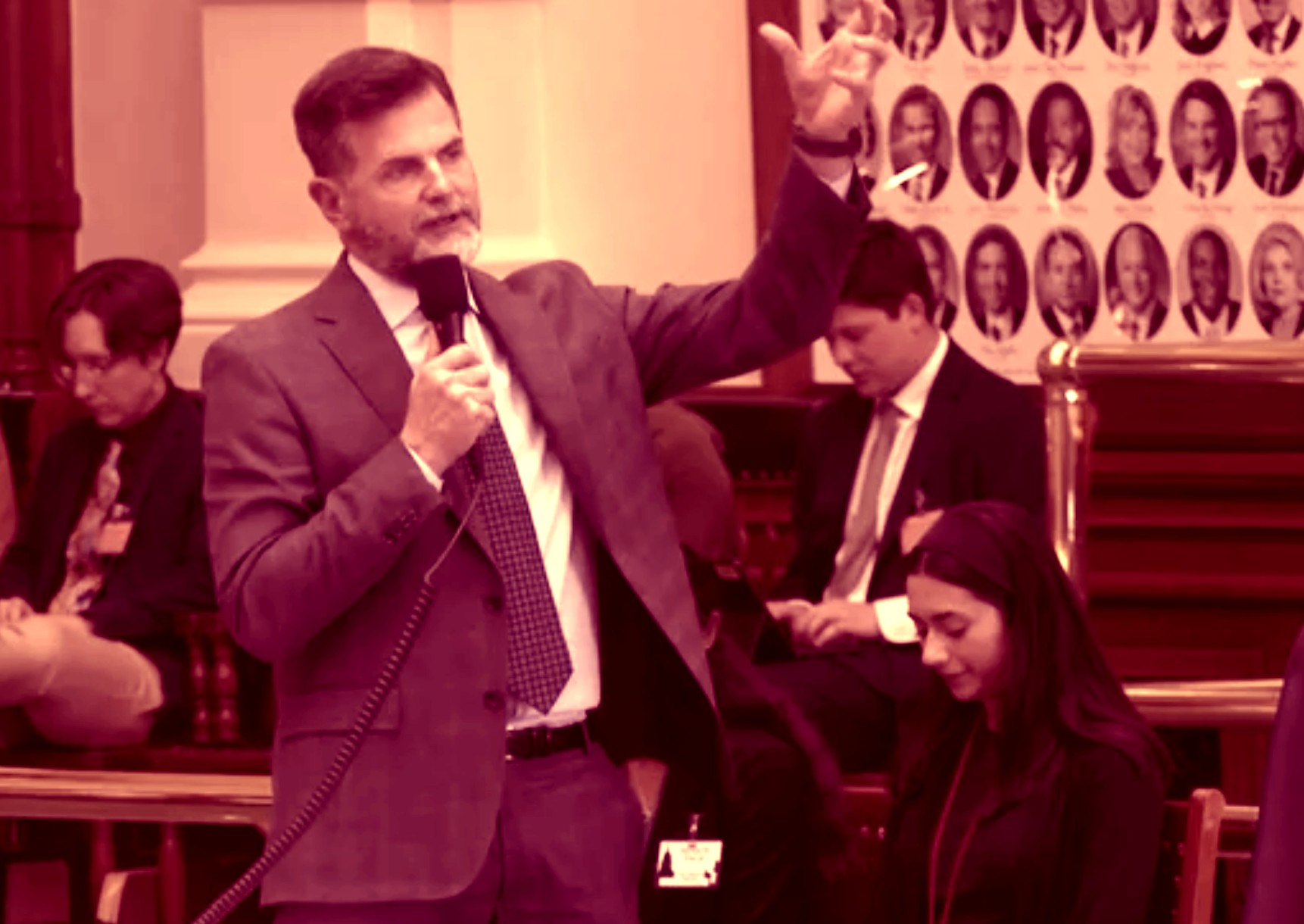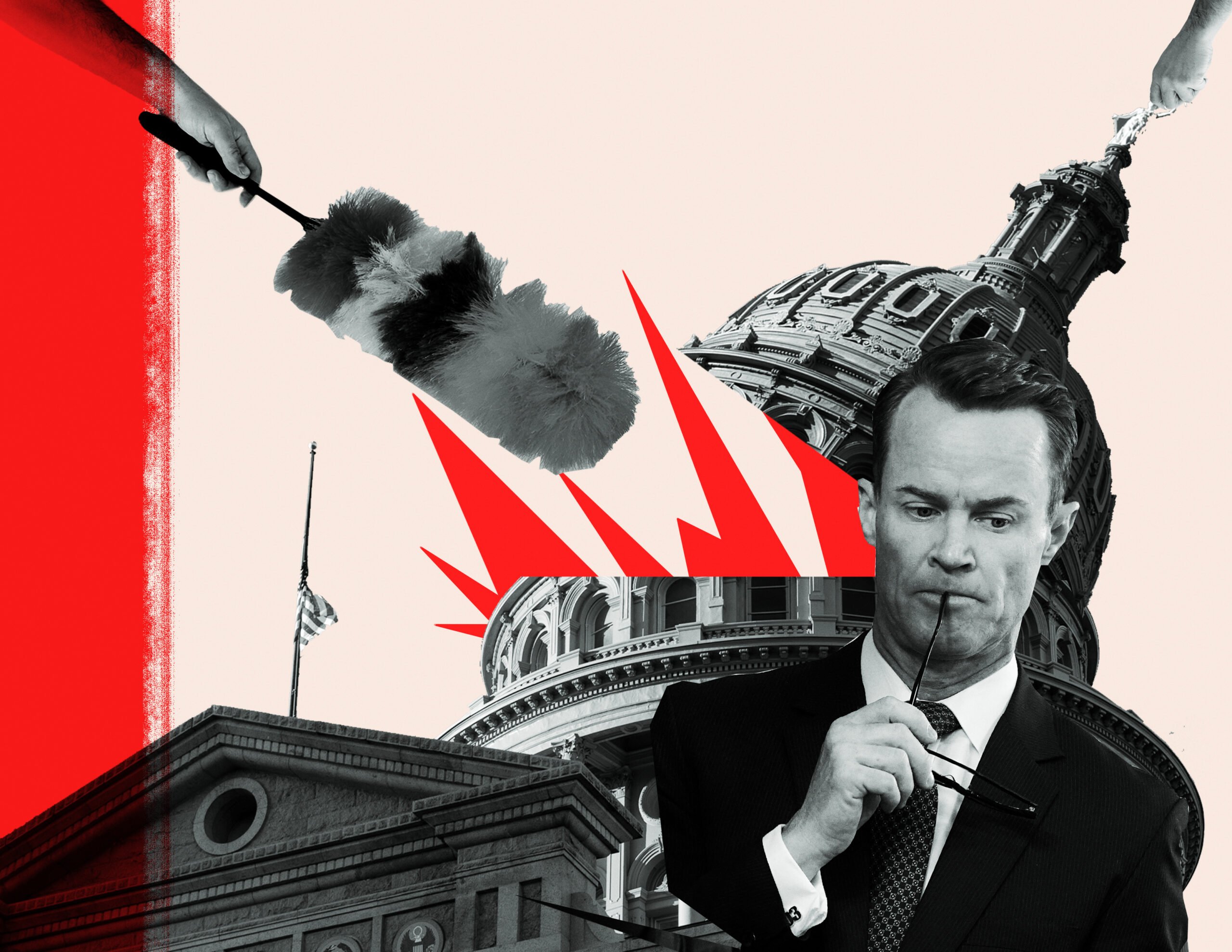
Slowly and Painfully, House Passes $337 Billion Budget
The chamber deliberated until 3 a.m.
The Texas House spent over 14 hours debating—but mostly, just standing around—amendments during a marathon proceeding to pass its biennial budget.
Ultimately, the House voted 118-26 to adopt a $337 billion budget early Friday morning. The bill, shepherded by House Appropriations Chairman Greg Bonnen, featured many big-ticket items. At the top is $51 billion to cover the ballooning cost of previously enacted property tax relief and finance a new round of cuts. The budget also puts $75.6 billion toward public education, which includes a modest but long-overdue bump in the per-student allotment, and $1 billion earmarked for school vouchers. Legislators are also maintaining full funding for Governor Greg Abbott’s border security project Operation Lone Star with another $6.5 billion for the next two years (despite the fact that border crossings are precipitously low and President Trump is back in the White House).
Nineteen Republicans, comprising the hard-right bloc, voted against the budget—contending that it enabled too much bloated government spending and not enough property tax cuts. Seven Democrats opposed it over the funding for private school vouchers. While there are some minor differences, the House budget has largely aligned with the one that the Senate unanimously passed on March 25. The two chambers will now iron out the differences in conference committee.
The debate kicked off with Chairman Bonnen filing a motion to move nearly 200 of the almost 400 amendments to Article XI, which is essentially the budgetary graveyard. The move effectively killed several conservative amendments, including over a dozen of Representative Brian Harrison’s bills with the same copy-and-paste anti-DEI language. As usual, Harrison took to the floor to complain, but the motion overwhelmingly passed 120-26.
This preliminary move seemed to suggest a quicker hearing without much debate, perhaps even letting legislators out before sundown. (Note: During eight of the last 15 legislative sessions, the budget hearing ended after midnight.) Legislators only voted on 33 amendments, adopting 25, but there were several points of order—the parliamentary challenges to proposed legislation, known lovingly in the Lege as POOs—that dragged the floor proceedings into the 3 a.m. hour.
Only a small portion of the filed amendments actually made it to the floor for debate, which often erupted as flashpoints between painfully long periods of procedural negotiation.
The first amendment adopted, filed by Representative Mary González, an El Paso Democrat, completely wiped out funding for the Texas Lottery Commission and the Economic Development and Tourism Fund in the Governor’s Office. The maneuver successfully took down conservative amendments that planned to siphon funds from these pools of money. Democratic state Representative Erin Zwiener first tested González’s tactic with a POO directed against Representative Mitch Little, whose amendment sought to raise salaries for employees of the Office of the Attorney General. Little’s amendment—and a few others, including, ironically, one of Zwiener’s—also fell to the same trap.
Representative Ana-María Rodríguez Ramos, a Dallas Democrat, brought an amendment to move $5 million from border security to create an economic instability dashboard that would track “indicators of household economic distress,” including eviction filings and food insecurity rates. GOP state Representative Tony Tinderholt criticized the amendment for taking money—0.07 percent of the proposed $6.5 billion for Operation Lone Star—away from fighting “sex slavery and fentanyl” at the border, which led to a brief argument between the two. “You want to use your talking points, your right-wing, red-meat talking points, I hear you,” Rodríguez Ramos said. “But these same people who you’re serving the red meat to, they’re getting evicted from their homes.”
The amendment failed 56-90.
Another heated debate came over a Republican amendment, filed by Representative Tom Oliverson, to take $70 million from Medicaid and funnel it into the Thriving Texas Families Program, which funds anti-abortion pregnancy centers. A ProPublica investigation found the program (formerly known as “Alternatives to Abortion”) is “riddled with waste and lacks oversight.” Democrats criticized Oliverson on his lack of specificity as to where the money would go and how it’d be used. San Antonio state Representative Barbara Gervin-Hawkins pressed Oliverson to name any of the specific providers in the program, which he could not do. “You have to be knowledgeable, if you’re expecting us to put $70 million in a program,” Gervin-Hawkins said. “I too agree that we want to be in support of mothers and babies, but to do it without any specifics is quite concerning.” The amendment passed 90-56.
As they do in every session, Democrats also put forth a largely symbolic test vote to expand Medicaid in Texas (which remains one of just 10 states that have not done so). State Representative John Bucy carried the amendment this time. “It should break all of our hearts that one of the richest states, in one of the richest countries, has allowed this to become our normal,” Bucy said. “Our money is going to other states while taxpayers aren’t getting anything.”
In the debate, GOP members argued against expansion largely by making claims about huge amounts of Medicaid fraud in the current state program (which is the duty of the Republican-run government, including the state attorney general, to police). Representative Gene Wu, the Democratic caucus chair, said the amount of fraud cited by the GOP took place over decades and that annual Medicaid fraud averages to about 2 or 3 percent—about the same rate as most other state agency programs. Several Democratic and Republican representatives took to the podium, questioning and interrupting each other in favor of or against the Medicaid expansion amendment. The amendment failed 65-83.
Ultra-conservatives did manage to press for one of their primary causes in the budget debate—though largely without success. Representative Andy Hopper, a freshman right-winger from Wise County, put forth an amendment to completely eliminate state funding for UT-Austin because of its LGBTQ+ and “DEI” studies programs and degree plans. After a brief back and forth between Hopper and Representative Lauren Ashley Simmons, who attempted to explain intersex people to a clueless Hopper, Simmons filed a point of order (the 10th of the day, not that anyone was counting). House parliamentarians ultimately ruled against the amendment after nearly an hour of deliberation.
Shortly after, Representative Brent Money, a fellow freshman hardliner, introduced an identical amendment, only swapping out UT-Austin for Texas State University. Lest one think Money suffered temporary amnesia about the fate of his pal Hopper’s amendment, he quickly withdrew the amendment after using his time at the microphone to make sure his colleagues knew how he felt about “woke gender ideology.”
Around midnight, Representative Janis Holt made the point to amend Representative Ramon Romero’s amendment about desalination to replace the words “The Gulf of Mexico” with “The Gulf of America.”
Zwiener adequately summed up everyone’s feelings about the whole endeavor with a simple question: “Why?”



